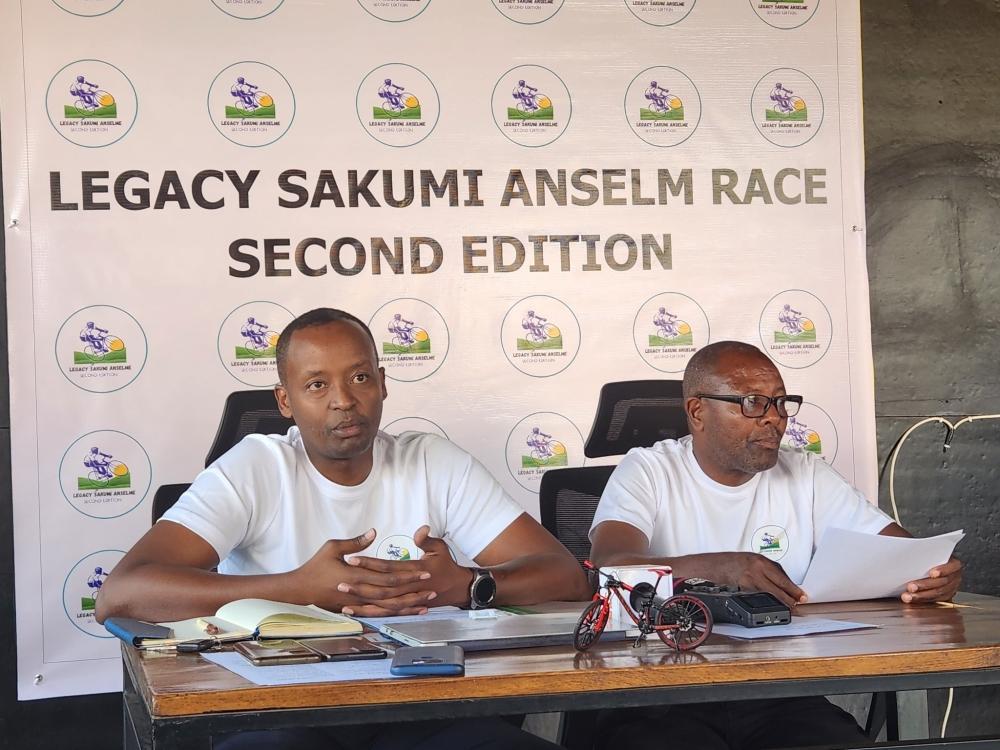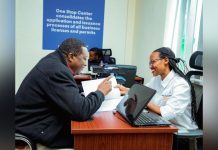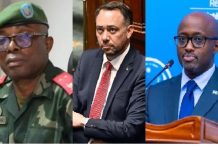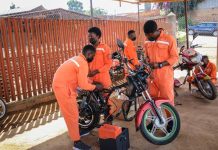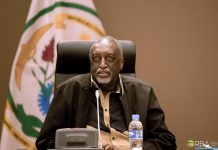Africa-Press – Rwanda. Remembering a lost loved one often comes with a mission to have them live on through your life achievements. This sentiment resonates deeply for many whose parents and relatives were killed during the 1994 Genocide against the Tutsi.
“Turi amashami yashibutse, ntimuzazima” (loosely translated as “We are the branches that sprouted, you will not be forgotten) is the rallying cry for every survivor, motivating them to persevere in life.
Serge Rusagara Sakumi, born and raised in Rwanda by parents who had various business interests during the tumultuous times under the genocidal regime, recalls the discipline and other moral values instilled by his parents during his childhood.
“I grew up in a business-oriented environment. However, despite my father being a successful entrepreneur, I didn’t have the privilege of his guidance for long.”
His father, Anselme Sakumi, tragically lost his life on April 8th around 3 p.m. in the Nyamirambo neighborhood, shot dead by former President Habyarimana’s Republican guards who targeted individuals on a list following the death of the former president in a plane crash on the night of April 6th.
“As we witnessed the shooting of my father, chaos erupted as everyone ran in different directions. The soldiers pursued my mother, whom they also killed minutes later. My siblings and I fled, each seeking refuge on our own, ultimately surviving the Genocide,” Rusagara recounts.
“The journey to survival was arduous. Each day felt like an eternity, fraught with numerous challenges. I vividly recall narrowly escaping death five times, truly a miracle.”
Reflecting on his upbringing, he fondly remembers his parents’ resilience in the business world, despite the discrimination and persecution faced by Tutsis during those turbulent years.
Serge Rusagara Sakumi during an interview with The New Times. Photo by Willy Mucyo
His father, Sakumi, ventured into various business endeavors, initially starting as a retailer and later expanding to become an importer-exporter (because at that time, one couldn’t be both at the same time). Eventually, he ventured into factory ownership.
However, the path to establishing a factory was fraught with obstacles, particularly due to being a Tutsi with ambitious business aspirations, which clashed with the discriminatory policies of the genocidal government.
In 1982, he submitted a business proposal for a tire factory to the Ministry of Trade and Industry. After years of uncertainty, he was informed that his proposal couldn’t proceed, only for the project to be awarded to another individual who failed to implement it. Nevertheless, this setback did not deter him.
Transitioning from importing bicycles to manufacturing them locally, he pioneered Rwanda’s first bicycle manufacturing company, concurrently promoting cycling sports in the country.
“We introduced the ‘Maguru’ bicycles to the market in October 1990. For my father, business was not just a means of livelihood; it was a testament to his resilience and commitment. Operating a business during those times was exceedingly challenging,” Rusagara recalled.
During and after the 1990 liberation war, his parents, along with numerous prominent figures, were unjustly imprisoned.
Left orphaned, Rusagara and his siblings were raised by surviving relatives, continuing their education and eventually establishing their own families.
Doing business 30 years later
Having a father who wanted to do more for a country that didn’t give him a chance to do so, Rusagara always felt the urge to be a part of Rwanda’s rebuilding. He immediately came back after completing tertiary studies in South Africa.
“I often ponder what could have been if my father had survived the Genocide. His innovative vision would have undoubtedly thrived in this era of expansive entrepreneurship, where daring to dream big is celebrated,” he expressed.
He believes that if his father and other victims had achieved what they did before the Genocide, there’s even greater potential for the new generation under a visionary leadership that prioritizes progress for all.
“As my eldest daughter approaches the age I was during the Genocide, I am struck by her innocence. It’s unfathomable how anyone could perpetrate such brutality against a child,” Rusagara lamented.
Married in 2009 and now a father of three, Rusagara is the founder of Dynamic Business Group, an IT and security company. Additionally, he established the Legacy Sakumi Anselme Race, a cycling championship honouring his late father.
For More News And Analysis About Rwanda Follow Africa-Press

